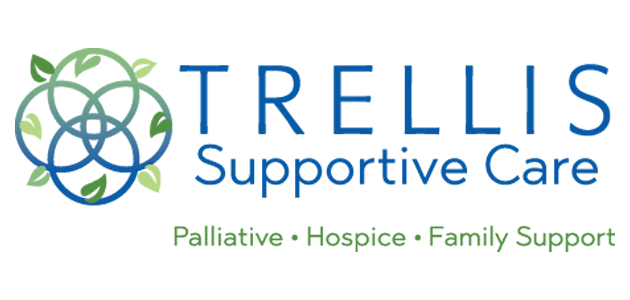Because We Care
Practical tips for family caregivers
August/September 2020
Caring for a person with dementia is challenging. One of the most frustrating behaviors is repetitive questions. Check out our tips to reduce the frequency of this exasperating pattern. In our middle article we share caregiving tips gleaned from the new generation of caregivers: Gen X and millennials who are doubly stressed because they are often in the sandwich generation: Caring for parents and their own children. Last, we offer insights for those whose grief includes guilt because they were unable to be at the bedside when a loved one passed. Take heart.
Share Page:
Repetitive questions
 “When are we going out?”
“When are we going out?”
A reasonable question under normal circumstances. But if the person you care for has dementia, you may get this question multiple times in an hour. Aargh! Indeed, repetitive questions are one of the top irritants mentioned by family caregivers whose loved one has dementia.
The repetitive questioning isn’t done intentionally, of course. Your family member simply can’t remember the answer you gave them even just a few minutes before.
- Look for the emotion behind the question. People with dementia often feel anxious, confused, and left out. They don’t understand what is happening around them. The person asking “When are we going out?” is likely experiencing significant worry about change.
- Remain calm and reassuring in your answers. A frustrated reply makes their anxiety worse. The most reliable remedy is to provide reassurance in a calm voice and with a gentle touch.
- Write out the answer: “At 3:00 this afternoon, we are going to the doctor’s.” Post the reply somewhere obvious. The next time he or she asks, you can say “Check the white board by the refrigerator. The answer is there for you.”
Other tips:
- Remove triggers in the environment. For example, avoid displaying special “going out” clothes until it’s time to get dressed.
- Avoid discussing an event that is going to happen in the future. Instead, let your loved one know that day or just the hour before.
- Keep simple tasks at the ready as a distraction. Folding the laundry, sorting screws, sweeping the porch are examples of activities that engage attention and allow your relative to feel helpful.
If you find yourself fed up and getting angry, leave the room. Take a few minutes to compose yourself. Repetitive questions are normal in dementia. Best to accept the fact and train yourself to safely let off steam away from your relative.
Return to top
Caregiving as a team
 Millennials and Gen Xers are using strategies that might benefit family caregivers of all ages.
Millennials and Gen Xers are using strategies that might benefit family caregivers of all ages.
Nearly half (47%) of adults in their 40s and 50s now find themselves “in the sandwich.” They serve as primary support people for an aging parent. Plus, they have children who are still at home or at least financially dependent.
One of their strengths is spreading the workload. A recent report shows that millennial and Gen X family members use technology to support their elder caregiving. They also embrace more of a team approach than their older caregiving peers do. Take a page from their playbook. To better share your load, consider these ideas:
- Weekly or monthly team check-ins. Use phone, text, email, or video conferencing. Report about doctor visits. Share observations and concerns. Discuss issues that need to be handled. Create a joint caregiving calendar on Google or use an online platform such as LotsaHelpingHands.com or CaringBridge.org.
- Whole-picture support. Ease the primary caregiver’s total load, not just tasks related to Mom or Dad. For instance, someone might mow the primary caregiver’s lawn. Or take on a child-related need.
- Trade off duties. Life happens! Perhaps one person usually drives Dad to the doctors. If they have a big work project due, someone else can take on transportation for a while.
- Provide breaks. Primary caregivers need time off—to preserve marital harmony or simply re-center. This is especially important if the aging parent lives with the primary caregiver. Other family members might invite Mom or Dad for a visit. Or could chip in to treat the primary caregiver to an evening out. A weekend getaway.
- Help takes many forms. It can be financial, physical, or emotional. One person may have less time but more money. For another, it may be natural to call Mom or Dad regularly to provide social and emotional support.
"But I wasn't there when she died"
 Many of us hold unconscious covenants with our kin. Among the most poignant, perhaps, is a commitment to “be there” when death is near.
Many of us hold unconscious covenants with our kin. Among the most poignant, perhaps, is a commitment to “be there” when death is near.
As adults, we may feel an obligation, and an honor, to be with our parents as they leave, just as they helped us enter.
With our spouses, the ultimate commitment—’til death do us part—often translates symbolically to a promise to be present at the deathbed.
But sometimes life interferes. You may be on your way when your loved one expires. The result of travel woes or just timing that didn’t work out as you hoped. In recent months, many families have found themselves separated from a loved one’s bedside by public safety orders. Due to virus risk, many hospitals set policies that prohibit visitors.
Whatever the circumstances, those who are not able to be at a loved one’s bedside grapple not only with their grief, but also tremendous guilt. There is often a sense of having abandoned a loved one at their time of greatest need.
How to cope with these feelings? Hospice chaplains remind us that the relationship never dies. Even if a person dies alone, all the love given is still with them. Love transcends distance and continues beyond death. The relationship doesn’t die. It simply changes.
And yet, those who miss being at the bedside often feel distressed at having lost the opportunity to express important sentiments. The distress may be even greater if the relationship was difficult. In truth, however, dramatic deathbed conversations are a Hollywood illusion. Most people are not conscious the last few hours or even days before death.
Hospice staff report that writing a letter can assist with positive closure even after a loved one’s passing. They suggest a letter elaborating on these five statements as if you were talking at the bedside:
- “Please forgive me.”
- “I forgive you.”
- “Thank you.”
- “I love you.”
- “Goodbye.”

